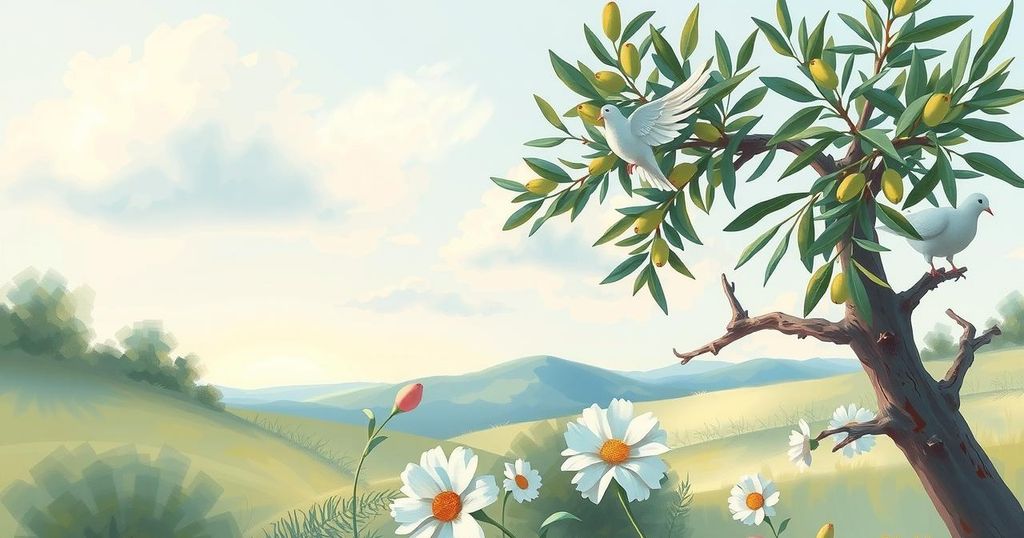Rising political tensions and violence in South Sudan are raising fears of a return to civil war, particularly following the involvement of Ugandan troops and attacks by the White Army. Historical ethnic grievances exacerbate the conflict, revealing the need for community dialogue and international engagement to prevent further escalation.
The escalating political tensions in South Sudan, particularly in Upper Nile State, have prompted concerns about a potential return to civil war. March 2025 saw the deployment of Ugandan troops to assist the South Sudanese government, intensifying opposition grievances and halting cooperative military discussions. This development threatens to dismantle the power-sharing arrangement established in 2018, which had effectively ended a protracted civil war. Jan Pospisil, an expert on South Sudan’s political landscape, analyzes the underlying causes of rising discontent.
In March 2025, the White Army, a militia representing the Nuer community, launched aggressive actions against South Sudan’s Defense Forces in Nasir County. This incident has led to fierce confrontations, resulting in nearly 50 fatalities and numerous injuries, with the White Army claiming self-defense. Historical animosities between the Nuer and Dinka communities, exacerbated by political fractures since the 1990s, have fueled these conflicts further. Government responses, including aerial strikes and the arrest of key opposition figures, have exacerbated the situation.
The recent outbreak of violence in South Sudan shares similarities with earlier conflicts, particularly the civil war beginning in 2013. However, current hostilities appear to arise from provocations rather than a unified political agenda. The White Army’s recent attacks began with an ambush on soldiers, leading to retaliatory violence and significant losses for the army. This incident has generated public unease regarding the government’s capacity to manage militia forces, prompting a crackdown that has further militarized the conflict.
Unlike the earlier civil war, where centralized directives fueled violence, the present conflict is characterized by grassroots grievances among the Nuer population. Following a series of skirmishes, the White Army’s successes have exposed vulnerabilities within the national army, provoking governmental attempts to scapegoat opposition members, despite the independent nature of the White Army’s actions. This approach appears less aimed at addressing the violence itself and more focused on suppressing dissent.
To avert a return to conflict, stakeholders in South Sudan must foster dialogue and demobilization efforts within communities. The government must resist reactive arrests and indiscriminate violence against civilians. Engaging community leaders, especially those allied with the White Army, in negotiations could facilitate de-escalation. The approaching rainy season could create strategic opportunities for confidence-building initiatives between Nuer communities and military forces.
Internationally, the response to the crisis has largely consisted of rhetorical condemnation without substantial action. The UN mission has urged restraint but must recognize the distinct dynamics at play with the White Army’s operations. Moreover, it is crucial for international actors to advocate against the arrest of opposition figures and emphasize de-escalation strategies. Fostering genuine political resolutions that address deep-seated grievances is essential for restoring peace in South Sudan.
The current situation in South Sudan reveals a precarious balance, with rising violence highlighting the fragility of the existing power-sharing agreement. The recent interventions and escalations necessitate a concerted effort towards dialogue and community engagement to prevent the outbreak of civil war. Moreover, a robust international response is paramount in advocating for peaceful resolutions and addressing the underlying tensions that continue to fuel conflict. Without these measures, the risks of renewed violence loom significantly over South Sudan.
Original Source: theconversation.com






